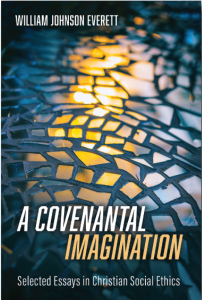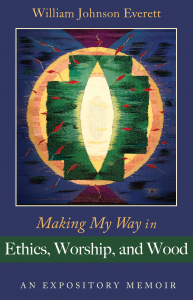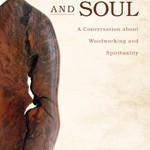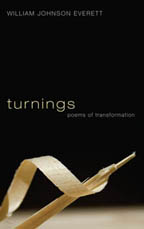Anxious feelings pervade our lives these days. The impending climate catastrophes, the horrors of Putin’s war on the people and land of Ukraine, the Trumpists’ efforts to destroy our republic in the name of “saving” it, the inflation at the pump and in the grocery aisle. Anxiety in our stomachs and in our adrenal glands, sits like a ghost of hopes dashed by waves of history we didn’t see coming. We were riding high on the promises of progress, evolution, and technology. We thought that if we could only expand the sphere of democracy and choice we would choose the good or that the good was in our power. But it wasn’t and isn’t.
And so anxiety returns, not just as a miasma of our time but as the existential reality that has always been at the heart of being human, of facing an unknown future. What is it? It is always more than the fear that has a name and an object. It is a looming unnameable shadow that cannot be tamed by our purposes or understanding. It lies in that sinking feeling in the pit of our stomach that feels like the mythic original Fall of all humanity. Sometimes it arises in our dreams and nightmares as our deep consciousness tries to name it, wrestle with it, and take on the scars it seeks to inflict on our waking lives. More than the loss of agency we feel in rage, it is an emptiness in face of the unknown. That is why some theologians, like Paul Tillich, put it at the core of their understanding of the human before God. Sometimes we English speakers turn to German and call it Angst, as if that would both grant it deeper meaning while objectifying it into another, more graspable world. But anxiety is by nature ungraspable. It is the deep apprehension that we cannot deal with the next moment, the next day, the next year—the future as hostile emptiness, a black hole devouring all possible futures.
Because anxiety is precisely a chilling sense of inadequacy before the future, it is the preferred weapon for those who would rule over us, claiming that only they can relieve us of this terrible burden. They turn anxiety into fear, which they can project onto an enemy that can be defeated. Rather than being intrinsic to the human condition, anxiety is projected onto an enemy force with distinct perpetrators—the ghostly Them—who can be cleared away for the sake of our security. The dictatorial savior is granted powers as extensive as the anxiety pervading our isolated lives. It is a power that always ends in ruin.
Manipulation of our anxiety is not the only ruinous path. We may also fabricate a tiny drama of cheerfulness around us. We can be more than nice, a smiley face on legs. We can even find a world that looks like nice, whether on the screen, the cruise ship, the casino, or the amusement park. We can create a world of make-believe to hide the anxiety from ourselves. We all resort to these crutches for the soul. But they cannot rebuild our legs so we can walk into an uncertain future with some sense of equanimity.
What then do the sages of the human spirit recommend? Wherefrom can spring an equanimity in the face of the future’s intrinsic unpredictability and menace? Appeals to God’s justice or loving purpose for all of creation threatens every inequality by which the richer world survives, thus dissolving the very props by which we seek to fend off our anxious feelings. Neither can an ethical hope slay this dragon, for appeals to hope itself may only intensify a preoccupation with the untameable future. Even the vision of a benevolent Jesus or Mary filling our future frame still holds us captive to the breathlessness that threatens our very life. A coming Messiah still is swallowed up in the cloud of anxiety itself.
We have, though, the claims of the Now, whether in Jesus’s famous admonition to live like the resplendent lilies of the field (Matt. 6:25-34) or the mindful meditation of our Buddhist teachers. Being present in the moment, including the anxiety that may pervade that moment can open us up to the Life that is seeking expression through us at every moment.
In that moment, release from death-filled anxiety comes in the tangible help we might extend to someone with desperate need for food, for shelter, for comfort in the face of death, for a way out of addiction, itself born so often of anxiety. It is this work of charity, of human connection, of love in the classic sense, that we can find release from anxiety’s black hole.
And then there is the tree. Though we humans have learned to live on ice and rock and treeless tundra, it is to the tree that we return, for it is from the trees that we arose, whose wood has framed our lives on land and water, that has heated our homes, and provided fruits for us to eat, leaves to nourish land in turn, from which the wild extravagance of nature’s bounty grows. And in the tree’s steady, patient circles of annual renewal we find a framing for a life lived in anxiety about the next moment of uncertainty. And of course, there is more—in religious lore, artistic rendering, and even song. In clinging to the tree, even death on and in a tree, we find some harmony with ever resurgent life.
I find these days that the tree gives me a particular kind of immediate activity that transforms my anxiety into peace. For me, even more particularly, it is a turn to the material meditation of my woodcraft. In reworking wood from death to new life as a useful or beautiful object, I find a focus on the moment that is life-giving. In this craft I find a little path to reframing my anxiety as the emptiness of a bowl whose lines and looks evoke receptiveness, acceptance, and a circle of renewal. In building a table I am drawn back into the meals that give shape to human life and the conviviality of a common world.
I would love to hear what is the “wood” in which you also find a way out from the anxiety that plagues our lives so deeply, especially in these times of loss.









 Red Clay, Blood River
Red Clay, Blood River